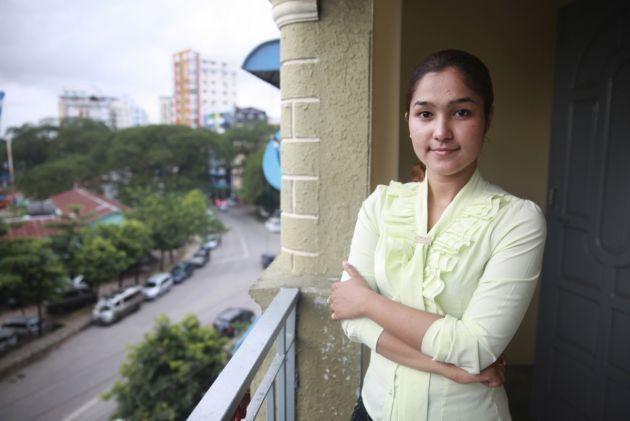Some minority Rohingyas given Myanmar citizenship, but Rakhines protest

A group of ethnic Rakhines who are mainly Buddhists are up in arms after the Myanmar government approved citizenship applications by more than 200 Muslims dislodged from their homes due rising violence in the area.
Residents in Myebon town in Sittwe state stayed at home, while business owners' closed shops, to protest the decision of the government to award citizenship to 209 Rohingya Muslims.
It was considered a rare move considering the prevailing persecution of Rohingyas, a national minority group like the Rakhines who, however make up the majority in Rakhine state.
A member of parliament lambasted the regional government decision, complaining that the citizenship process was clearly railroaded, ucanews.com reported.
"Our Rakhine community doesn't accept that more than 200 Bengalis have been granted citizenship," said Pe Than, a lawmaker in the Myanmar lower legislative chamber.
"The verification process has been so quick and the township level board didn't listen to the voices and recommendations of the Rakhine community leaders."
Rights groups and the international community have pressured Myanmar to formalize the citizenship of the minority mainly Muslim Rohingyas, who are estimated number around 1.3 million of Myanmar's 56 million people.
Nearly 90 percent of Myanmar's people are Buddhists.
Rohingyas are victimized in targeted attacks, and overcrowding in refugee camps raised concerns.
But the citizenship issue seems likely to continue.
An immigration officer in Sittwe said more Rohingyas would be granted citizenship in the coming weeks.
Immigration officer Khin Soe said some 299 Rohingyas are on a township-approved list that were to be submitted to the state government as part of the second wave to of citizen seekers.
The newly-recognized citizens have been encouraged to keep their movements limited in the meantime, fearing the backlash from the Rakhine who disapprove of the move.
"The authorities told us that we have the same rights as other citizens and are free to travel.
"But they pleaded with us to be patient and not to leave the camp or travel far to avoid raising tensions," said Kyaw Thein, a leader at a camp for people displaced internally living in Myebon township